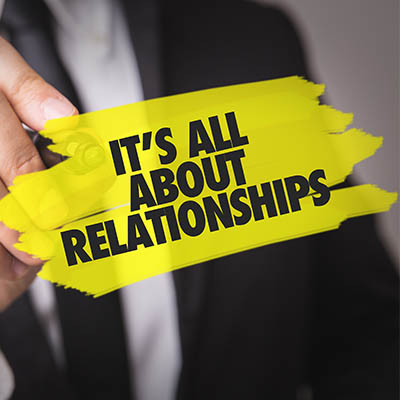Entrepreneurship development: Relationship management (II)
Last week we introduced what Relationship Management is as well as its essence and weight in shaping our successes in life…

Last week we introduced what Relationship Management is as well as its essence and weight in shaping our successes in life. We also introduced the concept of relationship spheres in which we suggested that we engage with different people in different spheres around us. For instance, we have our families, friends, colleagues, etc. with whom we interact at different times and different spaces.
The people, their requirements and expectations are, at least slightly, dissimilar from one sphere to another. Even within the same sphere, individuals are different with disparate temperaments, motivations and capacities. We have to understand those differences and relate with each sphere and person appropriately. For our purpose here, we are interested in how an entrepreneur can effectively relate with the individuals within their business universe. By business universe we mean the various spheres composed of colleagues at work, customers, suppliers, professional service providers such as lawyers, external auditors, etc.
- NSCDC nabs man for stealing goat in Kwara
- Kogi to Nigerians: Ask EFCC in whose custody it found its ‘missing’ money
Today, we are interested in how the entrepreneur can build effective and healthy working relationships with their stakeholders. Even though the people in different spheres may be like chalk and cheese, thankfully, the fundamental principles and practices of building mutually rewarding relationships with them are generally the same. We will try to cover some of these over this and the next two weeks, as follows:
Be technically competent: The first thing you need to do to stand a chance of creating and developing a meaningful relationship with others is to be technically competent in what you do. Your technical competence may be the reason why you even get to meet some people either as your colleagues, employees or clients. People love those who add value to their lives and your technical competence will make it possible for you to do just that with them. Start from there and continue to develop your technical skills.
Work to build relationships: Good and healthy relationships don’t grow on trees! They must be built, nurtured and protected. The way to do it is by deliberately planning and working at it; Make out time for the people in your universe. This would often be a combination of regular phone calls, visits, official and even private support, etc. Whatever it is you are doing with them, be sincerely interested in the persons, their interests, fears, hopes, etc.
Our technical skills will always help us get opportunities and footholds. They can also help us get second chances when we mess up. But it is our relationship skills that sustains us over the long run with other people. The easiest way to build and sustain lasting relationships with others is by being deliberate in everything we do with them through building our emotional intelligence. The best relationships are built deliberately, carefully and over time.
Develop your emotional intelligence: Our abilities to build relationships is a manifest of our emotional intelligence. As we mentioned in the first part of this series, our emotional intelligence is all about “… our capacity to detect, recognise, understand and manage our emotions as well detect, recognise, understand and manage the emotions of others.” And that, “There are four elements of emotional intelligence viz: self-awareness, self-management, social-awareness and relationship management.”
A high emotional intelligence will mean you will understand your own emotional state at any point in time (self-awareness) and also know exactly the right things you need to do to optimise your performance in the circumstances (self-management). It also means you can detect other people’s emotional state and know precisely what to do (social awareness and relationship management). Like our intellectual capacities, we can also improve our emotional intelligence. Building your emotional intelligence means you will be able to handle relationship issues wisely. Some of what you must do for that will include:
Be authentic and realistic: Our differences as individual human beings are a great blessing to all of us. Some people are excellent with their hands whilst others are with their minds. Some are very good at meeting with customers whilst others are more comfortable working in the back offices. We must understand ourselves, what we are good at, what we best enjoy, and who we really are. We can always work to improve on our areas of weaknesses but without struggling to be what we are not. Being sincere and authentic is key to our healthy relationships with others. We, each, can see through people who pretend and are duplicitous. And we have only little regard for them.
An integral part of being authentic is being realistic on expectations. That is not in any way suggestive of being unambitious. Rather, it is about stretching but also ensuring that we are practical in achieving our dreams. Being authentic means being truthful and having integrity in everything we say and do.
Listen to others: Transparent and clear communication is fundamental to building healthy relationships. We communicate with others in various ways such as by email, physical or virtual meetings, phone calls, etc. We also ‘communicate’ in very subtle ways such as direct eye contact, facial expressions, body movements, etc. But communication is two-way, at least, if two or more people are involved. The sad aspect of it is that most people are good at trying hard to express themselves but are very poor at ‘actively listening’ to others. To work very well with others, you have to be an ‘active listener’. This means you must understand what the other person is trying to communicate to you. This involves being attentive; it involves asking questions to confirm your understanding, etc. Without effective communication, relationships will ultimately crumble.
Next week we will continue with other principles and practices of building, nurturing and protecting healthy relationships.
